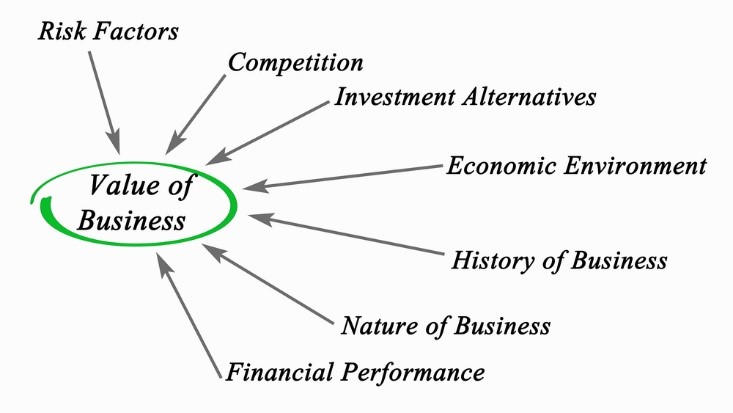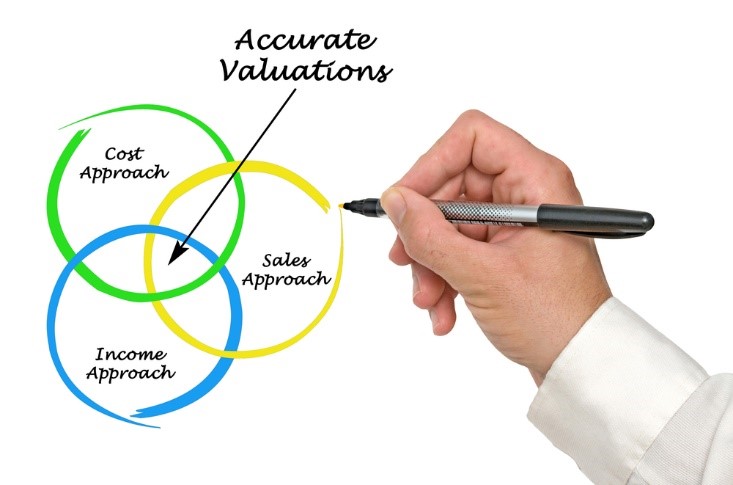What is a Business Valuation?
And What Should It Address?

An Opinion That You Can Rely On
A business valuation is an opinion formed by a business valuer. Like all opinions, accuracy, credibility and reliability rests on the work done prior to that opinion being formed in our view.
An opinion on the value of a business, if it is to be an opinion of quality, needs to have a defined process that is applied with reasonable care.
Importantly, there are recognised standards governing valuation work you should be aware of. Standards assure those seeking business valuations get quality documents delivered to them fit for the purpose for which they were requested. The Courts of Law have them, as do Governments and Government Departments and professional associations. Internationally, there are valuation standards contained in the International Valuation Standards 2017 (IVS 2017). These standards are progressively advanced to cater for new technologies and practices. More and more authorities and professional bodies are moving to adopt the International Standards to govern work in business valuations.
Major Business Valuation Report Components
There are four major components that a business valuation report should address in our view. These are:
- An investigation into the physical nature and environment of the business;
- An Investigation into the financial records and a performance;
- An investigation into the business sales market place; and
- Selecting and applying a valuation approach and method to the results of those investigations.
Fundamental – Profits & Risks
Value comes from the future benefits of business ownership in our view. In essence, business value comes from the future profits of a business. The future cannot be predicted precisely. There is always a degree of uncertainty. The further out the future view is, the more uncertain it is. So, there are risks in the future outlook of a business. The risks in the future for a business are largely determined by reaching an understanding of its physical nature and environment and the uncertain outlook associated with it.

The Physical Nature and Environment of a Business.
Assessing the value of a business based solely on its financial information is assessing a business on what it has done in its past. Assessing the physical nature and operations of a business is to understand the risks associated with what it is likely to do, and the challenges it may confront, in future.
The purpose of assessing the physical nature of a business is best described, in our view, by Shannon Pratt.
“To understand the business from a physical and operational point of view and to understand the philosophy, strengths and weaknesses of the business and what will cause the future of the business to differ from the pure extrapolation of the historical past of the business.” (Valuing a Business – An Analysis and Appraisal of Closely Held Companies).
The physical nature and environment investigation should look into these broad areas:
-
- Its industry, economy and location.
- Its premises, plant & equipment, products, customers, suppliers and competition at least.
- Its management structure, strategies, controls, systems and processes.
A business will have strengths and weaknesses. Each will have some risks to the future outlook of the business that will cause of its outlook to differ from its past. These risks reflect the degree of uncertainty that the anticipated profit levels will not be realised. Understanding and quantifying the risk is essential in assessing business value, in our view.
Financial Information
Financial records and reports reflect the past financial performance of a business. Importantly, its past financial performance can indicate its future financial performance, but it is an indication only.
The importance of an investigation into the financial records and financial statements is to:
- Firstly, determine a profit level that is likely to be maintainable into the future; and
- Secondly, assess the total funds invested in the business for it to operate on a normal level.
Recasting Financial Information
Financial recasting is an important element to understanding the earning capacity of a business. Recasting allows meaningful comparisons with other business opportunities and shows the profit capabilities of the business operation before the ownership makes personal choice decisions. These decisions effect the choice of business in ownership entities and structures and where the business profits are spent/invested to maximise the personal preferences and circumstances of those associated with the ownership.
It eliminates such items as excessive and discretionary ownership choice expenses, and non-recurring revenues and expenses from historical financial presentation. Debt, interest expense and taxation items reflect the personal ownership structures and financial decisions and situation of the present ownership.
Market Information
“The use of market-based inputs should be maximised” (IVS 2017) in business valuations. It is essential in reconciling the information gleaned investigations into the physical nature and environment of a business and its financial records. It brings ‘reality’ to the valuation work, in our view.
Small Business Enterprises (SME) businesses are largely influenced by the personal preferences of the ownership. The selection of an ownership entity, financial recording and reporting and business practices mean that SME business information and data can vary widely and is sometimes not verifiable.
Additionally, there are about 19 different ANZIC business categories. Then, there are numerous subcategories, coupled with businesses of varying sizes. It can make finding businesses with similar characteristics, verifiable data in terms of quality and quantity in ‘arm’s length’ transactions difficult for direct comparison. Inevitably, subjective judgement is required in valuing SME business enterprises. Market knowledge and experience in SME sales is an important quality for a business valuer if sound subjective judgements are to be made in valuing a business.

Valuation Approaches and Methods
Broadly, there are three approaches to business valuation. A business valuer needs to consider each of these in valuing a business before selecting an approach and a method within that approach to apply. The selection of an approach and method will have a bearing on the valuation outcome. Knowledge, skill and experience are key features a business valuer needs to have in this area.
Firstly, the Income Approach. In essence, the Income Approach is based on the Theory of Valuation. The Approach determines the present value of a business based on a judgment of the anticipated future cashflows, the periods of time for those cash flows, and the anticipated risks associated with those cashflows not being achieved. Variations can be combinations of the number of cash flows, the periods of time and the discounts for risk being applied. It can vary from a single cash flow for a single period with a single discount for risk, to complicated varied cash flows relating to varied periods of time and varied discounts being applied.
Income Approach Methods applicable to small businesses are seen as:
-
- Discounted Cashflow Method (DCF); and
- Excess Earnings.
Secondly, the Market Approach. It assumes that a buyer would gravitate towards the business with the lowest price if all other fundamental features and risks were the same. In the SME sales (transactions) market, the quality, quantity, currency and reliability of the market information available is best judged by participants active in the marketplace, in our view. The Comparable Transactions Method is the appropriate method for SME business valuations.
Thirdly, the Cost Approach. It is based on the principle that a buyer will not pay more for a business, barring time limitations, inconvenience, risks and other opportunities, to get a business (asset) of equal use to the buyer. It gets an indication of value by calculating the cost of replacing or reproducing the present business. The Replacement Cost and Reproduction Cost Methods could be considered under this Approach.
Your Decision is Your Choice
Business Valuation Reports that you are going to rely upon for important decisions, particularly those decisions that will impact your financial position or acquire financial liability need careful consideration in our view. A business valuation is demanding and time-consuming work if an accurate, credible and reliable Business Valuation Report is to be delivered to you. You have the choice as to the Business Valuer you choose to do the work for you. Choose carefully.
Talk to us about Business Valuation.
Click here for more information on the Business Valuation